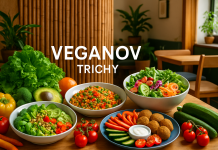In recent years, there has been a significant shift towards veganism and plant-based diets. People are embracing these dietary choices for various reasons, including ethical concerns, environmental sustainability, and health benefits. While a well-planned vegan diet can provide the essential nutrients, some individuals may find it challenging to meet their nutritional requirements solely through food sources. This is where vegan supplements come into play.
These are specifically designed to bridge any potential nutritional gaps that may arise from a plant-based diet. They provide essential vitamins, minerals, omega-3 fatty acids, and other nutrients that can be challenging to obtain in sufficient quantities from a purely plant-based diet. However, not all are created equal. It is crucial to choose products from reputable brands that prioritize quality, transparency and use ethically sourced ingredients.
The Need for Vegan Supplements
In a plant-based diet, there is a wealth of nutrients readily available. However, some essential nutrients may require a little extra attention to ensure optimal intake. The supplements can play a crucial role in meeting specific nutritional needs and ensuring a well-rounded diet.
- Vitamin B12, which is primarily found in animal-based foods, is essential for nerve function and red blood cell production. Vegans often rely on B12 supplements to maintain adequate levels of this vital nutrient.
- Omega-3 fatty acids, typically associated with fish oil, can be obtained from various plant-based sources such as flaxseeds, chia seeds, and algae-based supplements. These omega-3 supplements are rich in essential fatty acids like EPA and DHA, which are beneficial for brain health, heart health, and inflammation reduction.
Exploring Vegan Supplement Options
Protein Supplements
Vegan protein supplements, such as pea protein, hemp protein, or brown rice protein, offer a convenient way to supplement dietary protein intake, especially for athletes, fitness enthusiasts, or individuals with increased protein requirements.
Iron Supplements
Plant-based iron sources like legumes, dark leafy greens, and fortified cereals are excellent choices, but iron absorption can sometimes be a challenge. Iron supplements derived from plant sources like ferrous sulphate or ferrous gluconate can help meet iron needs.
Calcium and Vitamin D Supplements
While calcium is abundant in plant-based foods like broccoli, kale, and fortified plant-based milk, some individuals may require additional calcium supplementation. Vegan vitamin D supplements, derived from lichen or mushrooms, can also be beneficial, especially for those with limited sun exposure.
Vitamin B12 Supplements
As mentioned earlier, vitamin B12 is a vital nutrient for vegans. Supplementing with vegan-friendly B12 supplements, available in various forms like sublingual tablets, capsules, or fortified nutritional yeast, can ensure sufficient intake.
Omega-3 Supplements
Plant-based omega-3 supplements derived from algae provide a sustainable and vegan-friendly alternative to traditional fish oil supplements. These supplements contain the essential fatty acids EPA and DHA, which offer numerous health benefits.
Choosing High-Quality Vegan Supplements
When selecting supplements, it’s essential to prioritize quality and effectiveness. Look for ones that are third-party tested, ensuring they meet the top standards of purity and potency. Opt for supplements made from whole food sources whenever possible, as they often provide a more comprehensive nutrient profile.
Read product labels carefully to check for any potential allergens or additives. Opt for the ones that are free from artificial colours, flavours, and preservatives. Additionally, consider supplements that are sustainably sourced and packaged in eco-friendly materials, aligning with the principles of a vegan lifestyle.
Incorporating Vegan Supplements into Your Routine
To make the most of vegan supplements, it’s crucial to incorporate them into a balanced and varied plant-based diet. Focus on whole, nutrient-dense foods and use supplements as a complement to fill potential gaps. Consult with your healthcare professional to determine your specific nutritional needs and the appropriate dosage of supplements. Remember that you should never replace a healthy diet with supplements but rather enhance it.
The Advantages and Disadvantages of Incorporating Vegan Supplements
Advantages:
- Nutritional Support
The supplements help fill nutritional gaps that may be challenging to meet through a plant-based diet alone. They provide the required vitamins, minerals, and other nutrients necessary for overall health.
- Convenience
These offer a convenient way to ensure an adequate intake of vital nutrients, especially for individuals with busy lifestyles or limited access to a wide variety of plant-based foods. They can be easily incorporated into daily routines and provide a convenient option for meeting specific nutritional needs.
- Targeted Nutrient Delivery
The supplements can be tailored to address specific nutrient deficiencies or health concerns. For example, individuals who struggle to obtain sufficient omega-3 fatty acids from plant-based sources can benefit from vegan omega-3 supplements derived from algae.
- Ethical and Sustainable
Vegan supplements align with ethical and sustainable practices, as they are free from animal-derived ingredients and do not contribute to animal exploitation. They are also environmentally friendly, as they reduce the demand for animal agriculture and its associated negative impacts on the planet.
- Suitable for Various Dietary Restrictions
The supplements are typically free from common allergens such as dairy, gluten, and soy, making them suitable for individuals with specific dietary restrictions or sensitivities.
Disadvantages:
- Reliance on Supplements
While supplements can provide essential nutrients, it is important to remember that they should complement a well-rounded, plant-based diet rather than replace it. It’s best to focus on obtaining nutrients from whole food sources as much as possible and use supplements as supplementary tool.
- Quality and Transparency
Not all vegan supplements in the market are of high quality or transparent in their ingredient sourcing and manufacturing processes. It is crucial to choose reputable brands that prioritize quality control, third-party testing, and transparency to ensure the efficacy and safety of the supplements.
- Potential Interactions and Side Effects
With a dietary supplement, there is a possibility of interactions with medications or potential side effects. It is advisable to refer your healthcare professional before starting with any new supplement regimen, especially if you have pre-existing health conditions or are taking medications.
- Cost
Some vegan supplements may be more expensive compared to their non-vegan counterparts. However, it varies depending on the brand, specific supplement, and ingredients used. It is important to weigh the cost against the potential benefits and choose supplements that fit within your budget.
Here’s a short table summarising the do’s and don’ts of incorporating vegan supplements into a plant-based lifestyle:
| Do’s | Don’ts |
| Consult with a healthcare professional | Solely rely on supplements |
| Prioritize whole foods | Assume all vegan supplements are the same |
| Choose reputable brands | Neglect other lifestyle factors |
| Read and follow dosage instructions | |
| Assess your individual needs |
Remember, this table provides a concise overview, but it’s important to refer to the detailed explanations in the article for a comprehensive understanding of each point.
Incorporating vegan supplements into a plant-based lifestyle can provide numerous advantages by bridging potential nutritional gaps, offering convenience, and addressing specific health concerns. However, it’s important to be aware of the potential disadvantages. By making informed decisions and consulting with healthcare professionals when necessary, individuals can effectively utilize vegan supplements to support their health and well-being within a plant-based lifestyle.
Author Bio: Leker Britannia
I am a creative content writer and I love writing the most in the field of personal care products, vegan supplements, natural health care products and many more. I have an interest in health and nutrition and bring a wealth of knowledge to create informative and engaging content. Through well-researched articles, I aim to empower readers with valuable insights and help them make informed choices for a healthier and more sustainable life.















